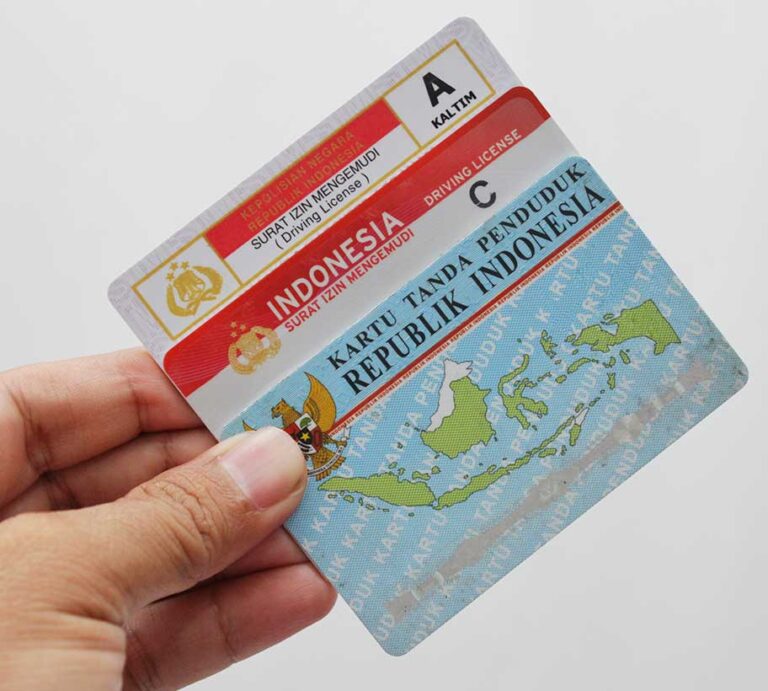Indonesia import tax cuts are set to apply more broadly as the government aims to counter the effects of global trade tensions triggered by U.S. tariff policies.
Coordinating Minister for Economic Affairs Airlangga Hartarto confirmed that the planned reductions in import income tax and import duties would not be exclusive to U.S. products, as previously implied by the Ministry of Finance.
The government’s adjustment of import tax rates is part of a wider economic strategy to soften the impact of reciprocal tariffs imposed by U.S. President Donald Trump. These policy adjustments play a crucial role in Indonesia’s strategy to protect its economy and keep trade flowing amid the rise of global protectionism.onism.
Broader Scope for Indonesia Import Tax Cuts
Airlangga clarified that the upcoming import tax reductions will apply generally to all countries, not just the United States. “That [import tax adjustment] is being prepared by the Ministry of Finance, and yes, it will apply generally,” he stated at the Coordinating Ministry for Economic Affairs office in Central Jakarta on April 14, 2025.
This clarification came after Febrio Nathan Kacaribu, Head of the Fiscal Policy Agency (BKF) at the Ministry of Finance, initially suggested that the reduced tariffs would apply solely to U.S.-origin products. Febrio had said, “This is part of the Trump reciprocal tariff negotiation. So it doesn’t apply generally.”
Airlangga’s statement indicates a shift in approach, signaling Indonesia’s intent to implement tax relief measures across a wider range of imported goods.
Tax Reform as a Deregulation Strategy
The import tax cuts are also part of a larger deregulation push. The government views tariff reform as an essential instrument to ease business operations and lower trade-related costs. By reducing tax barriers, Indonesia aims to support domestic businesses affected by international trade volatility.
This initiative responds to the growing complexity of global trade, especially as countries like the U.S. implement unilateral tariff policies. Through deregulation, Indonesia seeks to reinforce its economic resilience.
Read More: Indonesia’s 2025 Core Tax System: Simplifying or Complicating Filing?
Product Categories Affected by Import Tax Reductions
The tax reductions will cover various imported goods, including high-demand electronics such as mobile phones, laptops, and other digital products. Finance Minister Sri Mulyani Indrawati explained that the government intends to lower the income tax on imports for specific items from 2.5% to 0.5%.
“This means reducing another 2% of the tariff burden. So anything that can reduce the tariff burden, as long as the U.S. tariffs haven’t come down, we will try to do it,” she stated during the Economic Roundtable on April 8, 2025, as reported by bisnis.com.
Additional adjustments will affect most favored nation (MFN) import duties for all U.S. products, bringing them down from 5%–10% to a lower range of 0%–5%. The government also plans to revise export duties on crude palm oil (CPO), ranging between 0% and 25%, depending on market conditions.
Indonesia Import Tax Policy Responds to Global Trade Tensions
The changes to Indonesia’s import tax policy directly address the United States’ intention to apply a 32% reciprocal tariff on goods from Indonesia. Although the U.S. initially scheduled these tariffs to begin on April 9, 2025, implementation has been delayed by 90 days.
Febrio explained, “We are discussing Trump’s reciprocal tariffs on us. These are the options we are preparing for the negotiation team to take there.”
By acting preemptively, the Indonesian government hopes to reduce the strain on its trade sector and position itself more favorably in ongoing negotiations.
Read More: Indonesia Stock Market Reacts to Global Trade Tensions
Economic Impact and Tax Revenue Concerns
Despite the potential benefits, experts warn of possible downsides. Bambang Brodjonegoro, Dean of the Asian Development Bank Institute and former Finance Minister, emphasized the link between global trade activity and domestic tax revenue. “If the impact leads to an economic slowdown, it will definitely affect the growth of tax revenue. Because there is a strong correlation,” he said on April 17, 2025, as reported by DDTCNews.
Bambang noted that it is still too early to fully assess the consequences. However, he stressed the importance of preparing for disruptions in international trade, particularly in production and consumption sectors.
He also cautioned that declining export performance, especially in commodities like palm oil, coal, and nickel, could further strain Indonesia’s tax base. “Like it or not, our tax revenue still depends on commodity prices,” he added.
Strategic Outlook on Indonesia Import Tax Policy
Indonesia’s decision to broaden import tax cuts reflects its strategic shift to manage global trade pressures. While the immediate goal is to ease the burden on importers and stabilize economic activity, the government remains vigilant about the broader fiscal implications. Ongoing assessments and policy flexibility will be critical in navigating the road ahead.
Need Help Navigating Indonesia’s Shifting Import Tax Landscape?
At Seven Stones Indonesia, we offer expert tax advisory and planning services tailored to your business needs. With compliance becoming increasingly vital in a dynamic global economy, our team ensures you stay ahead of the curve while optimizing your tax strategy.
Let us help you make smarter, compliant financial decisions, starting today. Join our WhatsApp Community through this link to get timely updates on Indonesia’s latest regulations, stay informed, and stay ahead with our expert insights.
Source: ekonomi.bisnis.com, news.ddtc.co.id
Image: Lightboxx / Shutterstock

















